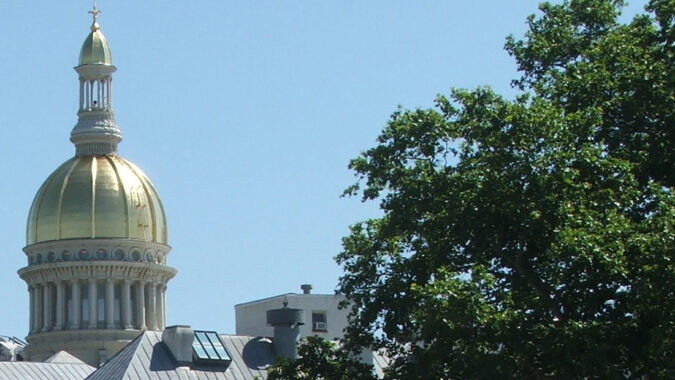 Legislation mandating companies provide paid sick leave has been substantially amended, permitting existing paid-time-off plans to satisfy requirements of the bill and overriding a dozen or so local ordinances so businesses have to follow only one set of rules.
Legislation mandating companies provide paid sick leave has been substantially amended, permitting existing paid-time-off plans to satisfy requirements of the bill and overriding a dozen or so local ordinances so businesses have to follow only one set of rules.
Lawmakers voted to ban off-shore drilling and amended legislation to extend the Urban Enterprise Zone (UEZ) program.
Paid Sick Leave, A-1827, (Lampitt, D-6; Mukherji, D-33)/ S-2171 (Weinberg, D-37)
Passed Assembly March 26
NJBIA position: seeking exemption for small businesses
NJBIA dropped its long-standing opposition to a statewide paid sick leave mandate after lawmakers agreed to several amendments. With the election of Gov. Phil Murphy, a paid sick leave mandate was all but certain. With these changes, however, businesses can expect to fare better than what was proposed in the past. Among the changes:
- State law will pre-empt the 13 local ordinances adopted over the last couple of years so businesses have to abide by only one set of rules.
- Existing paid time off plans could satisfy requirements in the bill; businesses that provide paid sick time before the law is enacted may not have to change their programs.
- Mandate reduced to 40 hours of paid sick leave a year from 72 hours.
- Employers could prohibit employees from using foreseeable earned sick leave on certain dates and require reasonable documentation if unforeseen sick leave is used during those dates.
- Language requiring employers to pay all out-of-pocket expenses for an employee to obtain reasonable documentation was removed.
- Per diem healthcare workers exempt.
- Employees would not be eligible to use paid sick leave until 120 calendar day after the employee starts. Employers have the option to start eligibility earlier.
- Effective date of law is 180 days following enactment.
Get more news on employment and labor issues by joining an NJBIA Issue Network
Urban Enterprise Zone Designations, A-3549 (Pintor Marin, D-29; Mukherji, D-33; Gusciora, D-15)
Amended on the floor by the General Assembly March 26, 2018
NJBIA position: support
Under the change, the former UEZs in Bridgeton, Camden, Newark, Plainfield and Trenton would be reinstated, and the remaining UEZs scheduled to expire prior to December 31, 2023, would be extended through the end of 2023. The bill would also require the Department of Community Affairs (DCA) to conduct a comprehensive analysis of the program and to issue a report on its findings to the legislature.
The UEZ Program provides incentives to encourage businesses to locate to urban areas and create private sector jobs.
Garden State Film and Digital Media Jobs Act, S-122 (Weinberg, D-37; Sarlo, D-36)
Approved by Senate March 26, 2018
NJBIA position: support
This bill provides a credit against the Corporation Business Tax and the Gross Income Tax for certain expenses in producing certain films and digital media content in New Jersey.
To receive the credit, taxpayers would need approval of the New Jersey Economic Development Authority and the director of the Division of Taxation. If approved, they would be able to deduct 30 percent of qualified expenses for film or 20 percent for digital media produced mainly in New Jersey from either their Corporate Business Tax or Gross Income Tax. The credit increases to 40 percent of qualified expenses if they are incurred in an eligible municipality (e.g. Atlantic City).
To be eligible, at least 60 percent of the total film production expenses have to be incurred in New Jersey, and the production would need to promote the state as a film and entertainment production destination in the credits with a statement like “Filmed in New Jersey” or “Produced in New Jersey.”
Offshore Drilling, S-258 (Van Drew, D-1; Singleton, D-7)/A-839 (Land, D-1; Andrzejczak, D-1)
Passed Senate March 26, 2018
NJBIA position: support
The bill would prohibit offshore drilling for oil or natural gas in state waters and prohibit the leasing of tidal or submerged lands in state waters for oil or natural gas production, exploration or development.
The bill is in direct response to the federal government’s decision to allow offshore oil and gas exploration along the East coast. New Jersey controls the first three miles of ocean at the state level, which the state could use to hinder or block drilling along the Jersey coast.
The bill is aimed at protecting New Jersey’s $38 billion tourism industry and the 50,000 jobs supported by its fishing industry.

